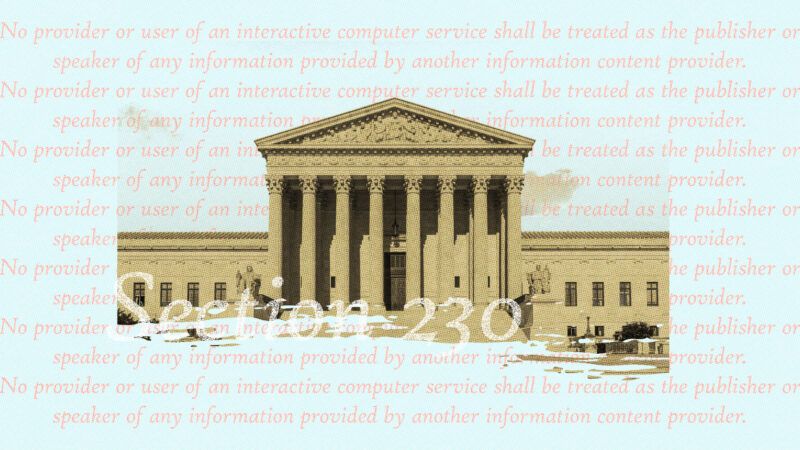The Supreme Court Weighs the Future of Section 230
The famous internet law is headed for the High Court.

Two years ago, the U.S. Supreme Court declined to hear a case which asked the justices to weigh in on the scope of Section 230 of the 1996 Communications Decency Act, the famous provision which says that "no provider or user of an interactive computer service shall be treated as the publisher or speaker of any information provided by another information content provider." Section 230 generally shields online platforms, such as social media companies, from being sued over content posted to those platforms by others.
Justice Clarence Thomas agreed with his colleagues that the Court should not have heard the case. But "in an appropriate case," Thomas wrote, the Court should not only hear arguments, but begin "paring back the sweeping immunity [for companies] courts have read into §230."
Thomas may soon get his wish. On February 21, 2023, the Supreme Court will hear arguments in Gonzales v. Google, a case which asks whether Section 230 immunizes Google, the owner of YouTube, from being sued by persons alleging that YouTube's algorithms aided the terrorist group ISIS by recommending ISIS videos to viewers. The U.S. Court of Appeals for the 9th Circuit ruled in Google's favor in 2021, holding that Section 230 bars such lawsuits. The Supreme Court will review that ruling.
To say the least, this is a politically loaded case. Both Republicans and Democrats have taken aim at Section 230 in recent years, claiming that the provision unfairly advantages big tech. Now those same politicians see this case as a vehicle for achieving their own policy objectives. "Far from making the internet safer for children," declared a friend of the court brief filed by Sen. Josh Hawley (R–Mo.), "Section 230 now allows platforms to escape any real accountability for their decision-making." Hawley is just one of many conservatives urging the Court to strip Google of its Section 230 protections in this matter.
The trouble for Hawley and those who think like him is that Google has solid legal arguments on its side. As Corbin Barthold, internet policy counsel for TechFreedom, has observed, "recommending content to users is classic publisher behavior. It's what a newspaper does when it puts a story on page A1 instead of page D6. To hold a platform liable for how it presents user-generated content is to treat it as a publisher—exactly what Section 230 forbids." Barthold added: "If ISIS had not uploaded videos to YouTube, YouTube would have had no terrorist content to serve up. This is a tell that the plaintiffs' suit is really about the user-generated content and is a loser under Section 230."
The law is on Google's side. We'll find out later this term, probably in late June, if a majority of the Supreme Court is on the law's side.


Show Comments (183)